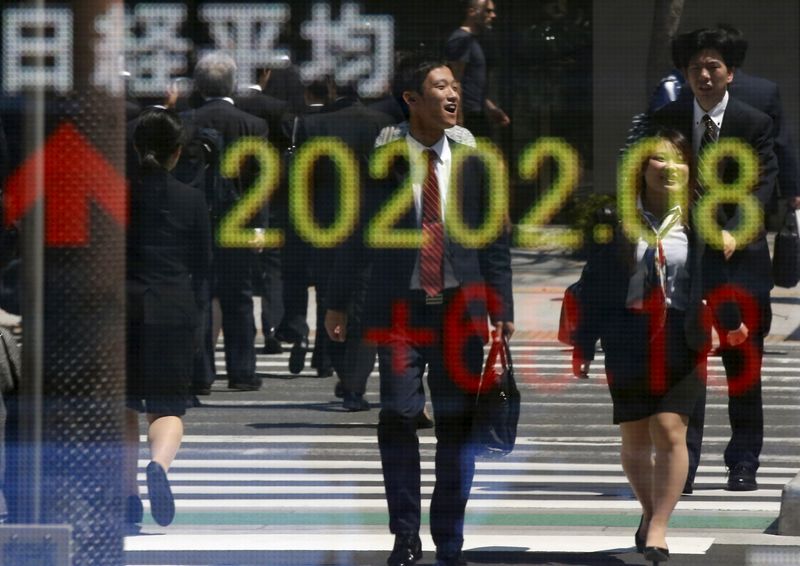This post was originally published on this site
https://i-invdn-com.akamaized.net/news/LYNXMPEB3S00V_M.jpg
Investing.com – Asia Pacific stocks were up Tuesday morning as investors eased concerns about the runaway inflation. Bitcoin gained following last week’s slump.
Japan’s Nikkei 225 gained 0.70% by 11:23 PM ET (3:23 AM GMT) after Bank of Japan Governor Haruhiko Kuroda said on Monday the world’s recovery from COVID-19 was uneven and pledged to keep monetary policy ultra-loose.
Meanwhile, Japan is planning to extend the state of emergency against COVID-19 in nine prefectures, including Tokyo, as the number of COVID-19 cases continues to increase. The U.S. State Department also upped its travel advisory for Japan to level four in response.
South Korea’s KOSPI rose 0.85%, with the Bank of Korea due to hand down its May policy decision on Thursday.
In Australia, the ASX 200 was up 0.53%. The country’s second-largest city Melbourne has restricted gatherings as it deals with its latest COVID-19 outbreak.
Hong Kong’s Hang Seng Index rose 1.29%. China’s Shanghai Composite rose 1.66% while the Shenzhen Component jumped 1.67%.
U.S. Federal Reserve officials, including Governor Lael Brainard, Atlanta Fed President Raphael Bostic and St. Louis Fed President James Bullard, reiterated that any inflation was temporary.
Bullard said on Monday that the central bank is not ready to pare back its stimulus measures, and expected inflation is to rise above 2% in 2021 and into 2022.
“We’re not quite there yet, I think we will get there in the months ahead… II think there will come a time when we can talk more about changing the parameters of monetary policy, I don’t think we should do it when we’re still in the pandemic,” Bullard told Yahoo Finance.
While the comments eased concerns about the runaway inflation, some investors remain worried that the Fed could be forced to change its current dovish policy earlier than expected should inflationary pressure build-up.
“Inflation is a key focus for investors, meaning uncertainty over what happens to interest rates,” Chris Ingo, chief investment officer of core investments at AXA Investment Managers, said in a note.
“Yield curves have stabilized, but it is not clear that renewed inflation concerns automatically mean steeper curves,” the note added.
Investors now await the release of the U.S. Personal Consumption Expenditure (PCE) Prices index, the Fed’s preferred method of measuring inflation, on Thursday.
On the central bank front, the Bank of Indonesia will hand down its policy decision later in the day, with the Reserve Bank of New Zealand following a day later.

